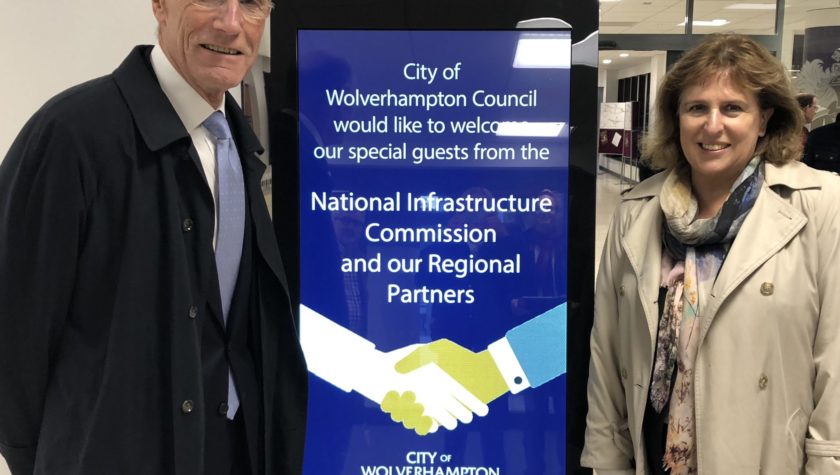On Tuesday, the Mayors of the West Midlands and Greater Manchester, Andy Street and Andy Burnham, put aside their political allegiances and came together to urge the Government to implement measures proposed in the National Infrastructure Assessment. Citing their shared ambition to deliver a revolution in transport, housing and employment in their respective regions, they called on ministers to grant city leaders further devolved powers and funding – one of our report’s key recommendations.
Since the publication of the Assessment in the summer, I have been meeting people across the country to discuss what our vision would mean for them. From the private sector to local government policymakers, support for city regions to be handed more control to shape their own destinies is widespread.
This week, my travels took me to the West Midlands and West Yorkshire. On Wednesday morning, Julia Prescot and I were welcomed to Solihull, where Andy Street convened a meeting with local council, business and university leaders. After the Mayor outlined his bold plans for transport, housing and economic development, we engaged in constructive conversation about how the recommendations in the Assessment, if put into action, could help the region realise them.
To get a sense for what could be achieved in the West Midlands, we visited ‘the Hub’ – the area to the south of the region which brings together Birmingham Airport, the National Exhibition Centre and one of Jaguar Land Rover’s production facilities. Sitting at the heart of the UK’s motorway network and the chosen home for HS2’s Birmingham interchange station, the accessibility of this location means it has substantial economic potential. An impressive development plan has been proposed for the area and Solihull Council has established the Urban Growth Company, a special purpose delivery vehicle, with the aim of joining up the aspirations of different stakeholders and coordinating investment. Touring the site with various partners involved in the project, the message they relayed to me echoed that of the Mayor – further devolution would help to ensure the opportunities presented by the Hub are fully exploited.
Heading north, our next stop took us to Wolverhampton. This is a city with a proud industrial heritage, but one that has felt the sharp end of the UK’s declining manufacturing sector, with the derelict buildings and decaying factories on its skyline a material reminder. I was invited to Wolverhampton’s Civic Centre to meet with council representatives who intend to be the architects of a new future for their city. In the coming decades, Wolverhampton is planning significant redevelopment, the centrepiece of which would be new housing and transport links along the Wolverhampton to Walsall corridor. The local leaders we met saw this as potentially transformational for the Black Country and I was struck by the excitement and enthusiasm of those taking forward this work.
I spent Thursday in Leeds and Bradford. The economies of these cities are becoming increasingly interdependent. Leeds’ continued growth will rely on people in Bradford choosing to work there, but their ability to do so is constrained by poor connectivity between the two places. The strategy of the West Yorkshire Combined Authority focuses on identifying how their transport network has to change to meet this challenge. By all accounts, there is a mountain to climb. Leeds is the biggest city in Europe without a mass transit system. Three-quarters of journeys are made by bus, most of which are still diesel. An ambitious and integrated strategy will be needed to tackle these challenges.
One hundred miles separates the West Midlands and West Yorkshire, but the leaders of both regions face a common trilemma. They – like their counterparts across the UK – must solve the complex jigsaw puzzle of housing, transport and employment: how can we provide the homes people need, with the right infrastructure to ensure that jobs are in reach? Infrastructure provision is vital to entice housing investment, and in turn, this gives businesses the confidence they need to create training and employment opportunities. If our recommendations are brought to life, if cities are given further powers and funding, they will have greater autonomy to develop joined-up strategies to address this. City leaders want to make the best choices for their communities and I am hopeful that the Government will commit to putting more power in their hands.




